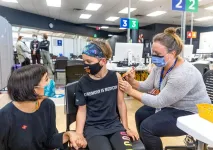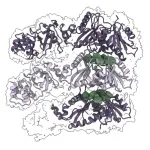UNDER STRICT EMBARGO UNTIL 00:01 AM (UK TIME) ON THURSDAY 3RD OCTOBER 2024
A rare collection of 300-year-old petitions gives voice to the forgotten women who cared for England’s most vulnerable children while battling their local authorities.
‘Confirm the said yearly annuity or otherwise the child is very like to be famished & starved’
– Ellen Fell (1665)
'Taking pity of them for fear they should be starved to death for want of food [I] did table & receive the said three Children' - Anne Beesley (1671)
Today, the UK faces a major retention and recruitment crisis in foster care, and carers in different parts of the country continue to campaign for higher funding. In September 2024, Northumberland County Council confirmed it was reviewing payments to foster carers, which have been frozen for over ten years, following calls from campaigners (Hexham Courant report).
Having studied the experiences of foster carers in the 17th century, University of Cambridge historian Emily Rhodes argues that these struggles have a long history and that England’s early foster carers had more authority than we might expect.
Rhodes, a researcher at Christ's College, Cambridge, studied a rare collection of surviving petitions submitted to the Lancashire quarter sessions courts between 1660 and 1720.
In a study published today in The History of the Family journal, Rhodes reveals the experiences of thirty-eight women who cared for non-kin children for their parish. Traditionally, this work has been called ‘boarding’ or ‘tabling’ but Rhodes says:
“There are very clear similarities between then and now and we should view these women as early foster carers. People in authority looked at family situations and judged whether it was appropriate for a child. When they decided it wasn’t, they sought to place them in a new home, ideally with somebody from their local community, and they compensated this person to look after the child.”
“These women provided such a vital role that when they weren’t paid enough or at all, they had enough authority to approach their county justices, powerful men, and successfully argue their case.”
“Today’s foster carers and the rest of society should know that even 350 years ago this role was essential and respected in society, and that women had power in the system. Every social safety net relies on determined individuals, we all need to remember that.”
Most of the women Rhodes encountered in the petitions would have been entitled to poor relief in their own right. In the 17th century, the Old Poor Laws supported a system of relief in England which saw parishioners contributing to a local pot of funds which churchwardens and overseers of the poor allocated to the needy in the parish.
Some needy or orphaned children were made apprentices but others were placed with a woman in the community, typically a widow or a mother, but sometimes unmarried women. For this work, women expected to receive payment from the parish. As a result, they were both recipients of poor relief and administrators of the poor laws.
Emily Rhodes said: “These petitions give voice to some of the most inaccessible women in history. They've left a very small footprint but they played a crucial role in society.”
Taking on the local authority
In their petitions, women often accused their local authorities of mismanagement and dishonesty. Three quarters petitioned because they were not receiving the promised rate and nearly one third requested an increase in pay. None of the petitions were rejected but Rhodes cautions that fewer failed petitions may have survived.
Rhodes said: “The state needed to keep these carers satisfied so the justices, the higher authority, overwhelmingly sided with them and opposed mistreatment by local authorities.”
In 1690s Preston, Alice Brewer of Lea battled her parish for years as they cut and withheld payments to care for Anne Helme, 'a poor distressed child’ who had lived with her for 14 years. Alice complained that ‘the town was pleased to differ & wrangle with your poor petitioner and to lessen and altogether deny the payment’. In one petition she argued that the overseers' refusal 'to provide clothes or other necessaries’ for Anne had caused her to become lame. By 1700, the parish owed Alice for three years of care, leaving her 'very poor’. The justices repeatedly ordered the overseers to pay their debts but they repeatedly failed to do so. How the battle ended we do not know.
More authority than biological mothers
Rhodes, who has just completed a PhD on petitioning by mothers in England and Wales from 1660–1720, found that foster mothers had significant advantages over biological mothers when dealing with the authorities.
“When birth mothers petitioned they had to prove, in a grovelling and pitiful tone, that they were among the deserving poor,” Rhodes said. “They had to describe the impact of being a widow, of having a disabled husband or having a very sick child. But for foster mothers, it was enough to say ‘I'm supposed to be paid for this and you’re not fulfilling your part of the deal’.”
For love or money?
Fostering in the 17th century provided poor women and their own families with vital income. The standard rate of payment for one child was around 40 shillings a year, but sums ranged from 12 to 78 shillings. This far exceeded average poor relief payments at the time.
Caring for these children was work and some women may have viewed the role in mostly or purely financial terms. In many petitions, however, female carers did express a strong sense of benevolence and compassion towards the children they were caring for.
In 1671, Anne Beesley told the justices that she had taken in three destitute children from Barton out of pity, fearing ‘they should be starved to death’. Anne claimed that she had expected the authorities to ‘provide for them' within three weeks but this turned into eight weeks and Anne was only reimbursed after petitioning.
Petitioners often pointed out that they had continued to care for children despite not being paid for months. In the 1670s, Elizabeth Drinkwater reported that the overseers of Great Bolton had failed to pay her for 9 months to care for Ann Reade, but that she had ‘kept the said child with all things necessary’ and had spent 6 shillings on clothes so she was ‘much impoverished’.
“It’s hard to imagine that some women didn't feel some regard for these children,” said Rhodes. “Many would have known them before they took them in. But petitions were carefully crafted arguments and might not necessarily record true feelings.”
In some petitions, carers threatened to end care and withdraw their services if they did not obtain their desired outcome.
One of the most distressing cases concerns Ellen Fell. In 1665, Ellen told the justices they needed to ‘confirm the said yearly annuity or otherwise the child is very like to be famished & starved'. She told them she had children of her own and had submitted several other petitions about her own family’s neediness. Ellen presented herself as a selfless maternal provider but by the time the court considered her petition, the child had been ‘already turned out of doors and lays in the streets’.
“It is very easy to see disorder in the past,” Rhodes said. “The records show us when things weren’t functioning properly. When a carer was being paid properly, we’re unlikely to find her.”
“Look at the news in 2024 and you will see stories of foster carers not receiving enough support and leaving the system. We still face issues with bureaucracy and people in authority not doing their jobs properly.”
These and other Lancastrian petitions have been digitised and can be viewed on Ancestry.
References
Emily Rhodes, ‘Women as Child Carers: Arranging and Compensating Mothering in Early Modern Lancashire’, The History of the Family (2024). DOI : 10.1080/1081602X.2024.2403346
Media contacts
Tom Almeroth-Williams, Communications Manager (Research), University of Cambridge: researchcommunications@admin.cam.ac.uk / tel: +44 (0) 7540 139 444
Emily Rhodes, University of Cambridge: elr41@cam.ac.uk
END






